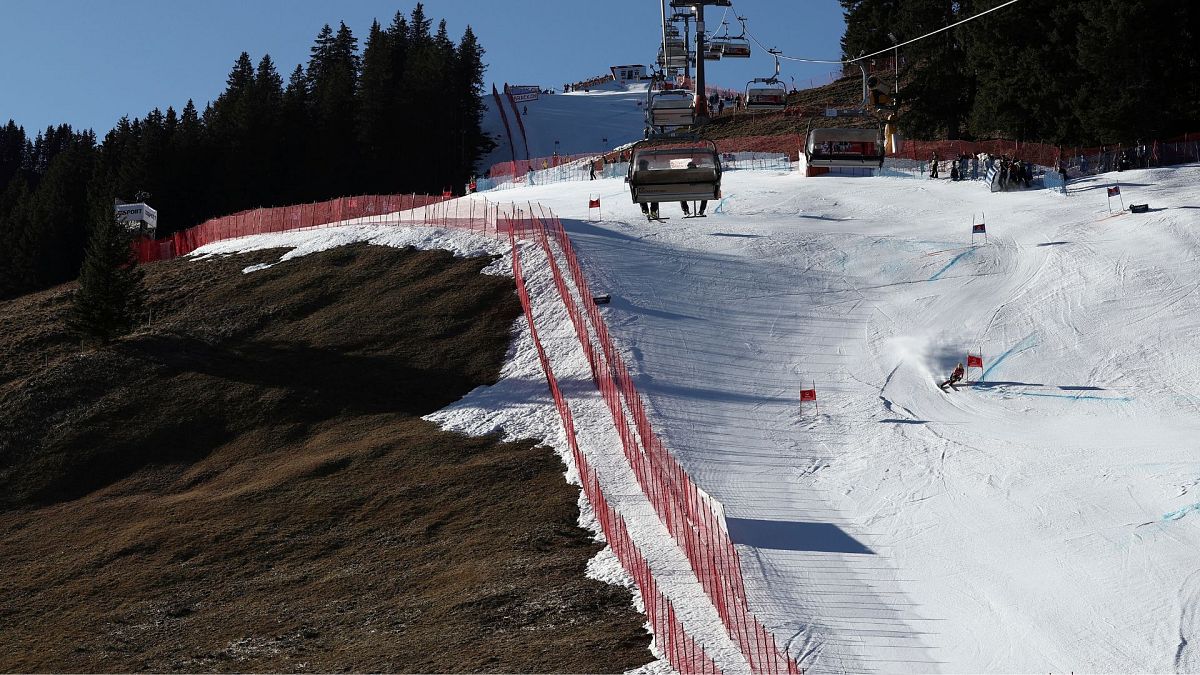Ski resorts across Europe have been left snowless this winter as temperatures spike.
Those at lower altitudes have been particularly hard hit, with almost a third of European resorts - from Austria’s Tyrol mountains to France’s Auvergne-Rhône-Alpes - currently forced to close.
As the climate heats up, the problem is getting worse. Since the 1960s, there have been five fewer snow days every decade in the French Alps, according to weather service Météo France.
Research published last year in the journal Nature showed that if global warming reaches 2°C above pre-industrial levels, more than half of the 2,234 ski resorts studied in 28 European countries could be at very high risk for snow supply.
In future, ski seasons are likely to shift to mirror the changing climate. But still, there’s no guarantee of snow on your next European ski trip.
So what can you do if you show up to a snowless ski resort?
Does travel insurance cover snow shortages for ski trips?
Unfortunately, most insurers will not cover ski holiday cancellations due to low or no snow.
This is because it falls under a ‘lack of enjoyment’ scenario, explains travel insurance provider World Nomads. It is therefore the equivalent of asking for a refund due to rain during a beach holiday.
Nonetheless, comprehensive winter sports insurance is more important than ever for low-snow holidays, as skiing on icy or sparsely covered slopes increases the risk of accidents.
You can also do other activities in the mountains, such as hiking and biking, both of which will usually be covered under your ski holiday insurance.
What to do if your ski resort is closed due to low snow
If all ski lifts in your resort are closed entirely for a day or more, you may be entitled to a refund. Any bookings for hotels, equipment hire or lessons would need to be cancelled or amended through the provider.
Failing this, you may be entitled to coverage under your travel insurance depending on the terms and conditions.
Most ski trip providers have policies in place for no-snow scenarios, such as changing your dates of travel or gaining a lift pass for a nearby resort at a higher altitude with more snow.
If you have booked a package holiday with Inghams, for example, and less than 10 per cent of your destination’s runs are open due to a lack of snow, they will organise transport to a resort with better conditions covered by your ski pass. You will also be refunded for any lift passes or lessons that you can’t use.
Similarly, Esprit Ski will organise free transport to a resort within two hours of your location for a maximum of three days if the resort you are staying in is fully closed, and will organise replacement passes for the new resort. They will also refund any ski lessons booked through them that can’t go ahead.
Crystal Ski allows you to change your holiday to another of its packages fee-free if less than 10 per cent of runs are open in the ski area you’re travelling to or if your lessons booked through them are cancelled.
Ski holiday provider Club Med will allow you to move your holiday to another Club Med resort if more than 50 per cent of the ski domain is closed for two or more consecutive days within five days of departure. Alternatively, you can cancel free of charge excluding travel costs, and receive your refund in the form of a voucher for a future trip.
How can you reduce your environmental impact while skiing?
2023 was the hottest year on record, driven by human-made emissions. Opting for a greener mode of travel is one of the best ways to reduce the environmental impact of your ski trip.
Many ski resorts are accessible by train and some even offer incentives for visitors travelling by rail.
For example, the AlpinExpress Pass - which covers France’s Morzine-Avoriaz ski region - offers exclusive discounts on snow passes, ski guides, spas and activities.


